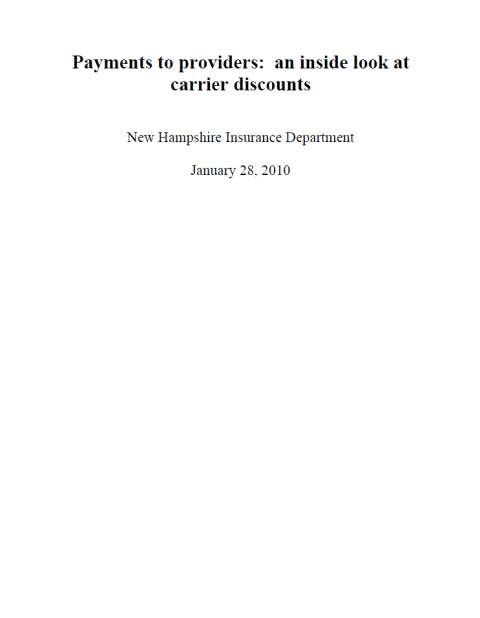Overview:
One way by which insurance carriers compete with each other is through the reimbursement contracts they have with health care providers. Assuming all other things being equal, the less a carrier pays for health care, the more it can retain for administrative surplus or for minimizing future premium increases. Health insurance carriers use many tools to control health care costs, including utilization and disease management programs, benefit designs with targeted cost sharing, health cost transparency tools, and alternative reimbursement methodologies that are intended to create provider incentives for more cost efficient care. Each of these mechanisms may reduce costs to some degree, but contract rates that determine provider payments more significantly affect costs.
Author(s):
New Hampshire Insurance Department
Contacts:
Tyler Brannen, Health Care Statistician
Citation:
Brannen, T., Payments to providers: an inside look at carrier discounts, New Hampshire Insurance Department, January 2010.

